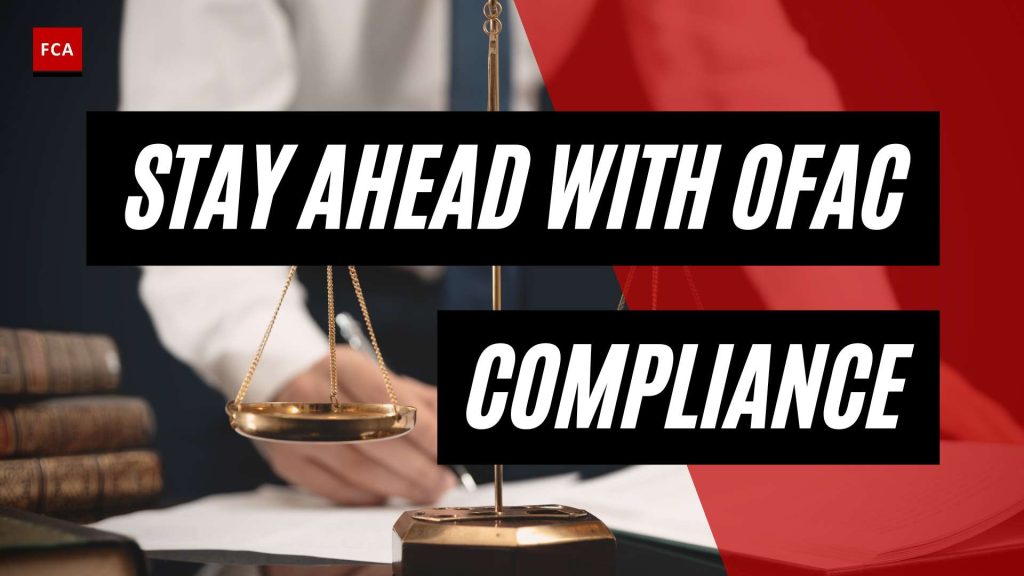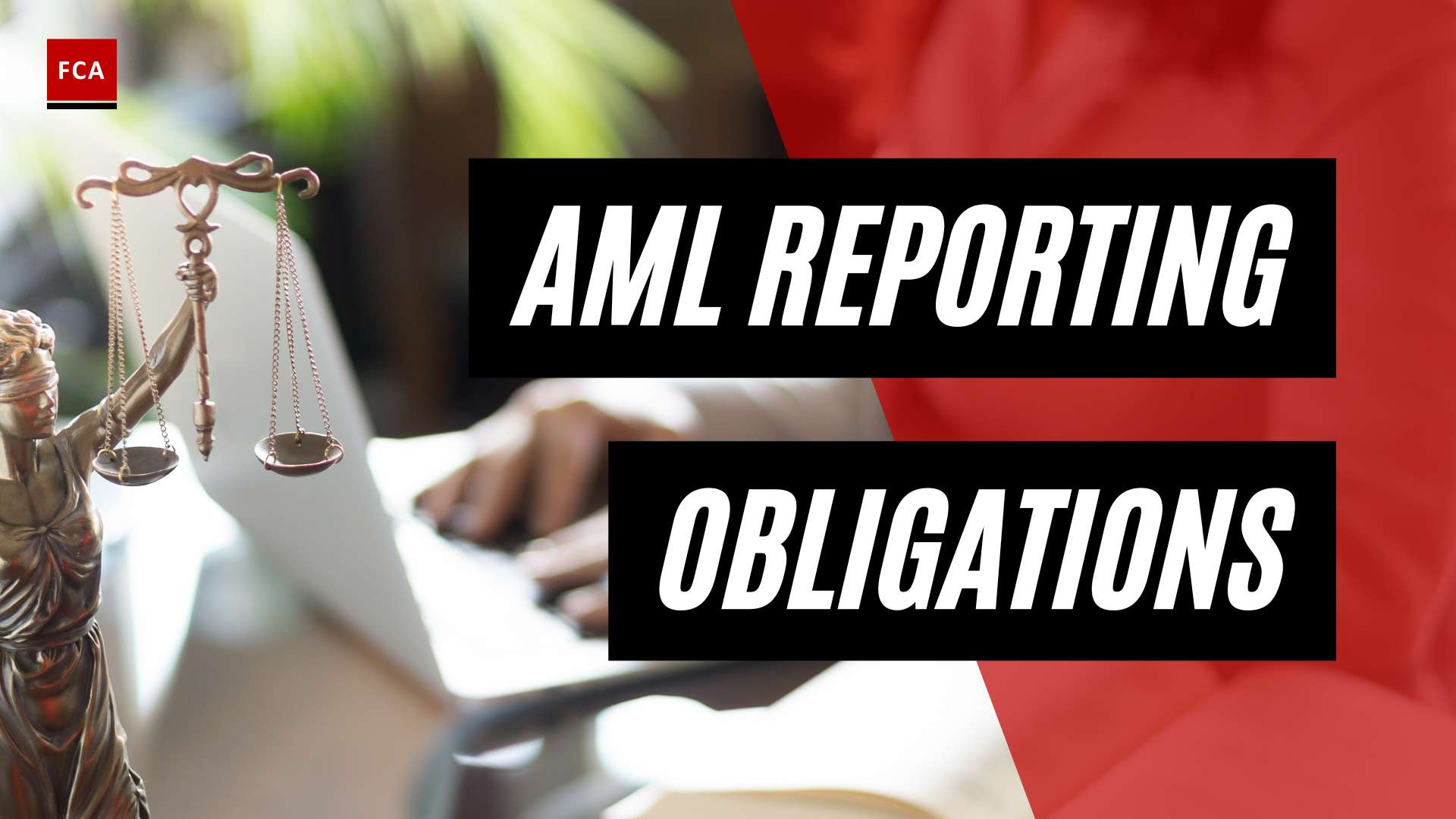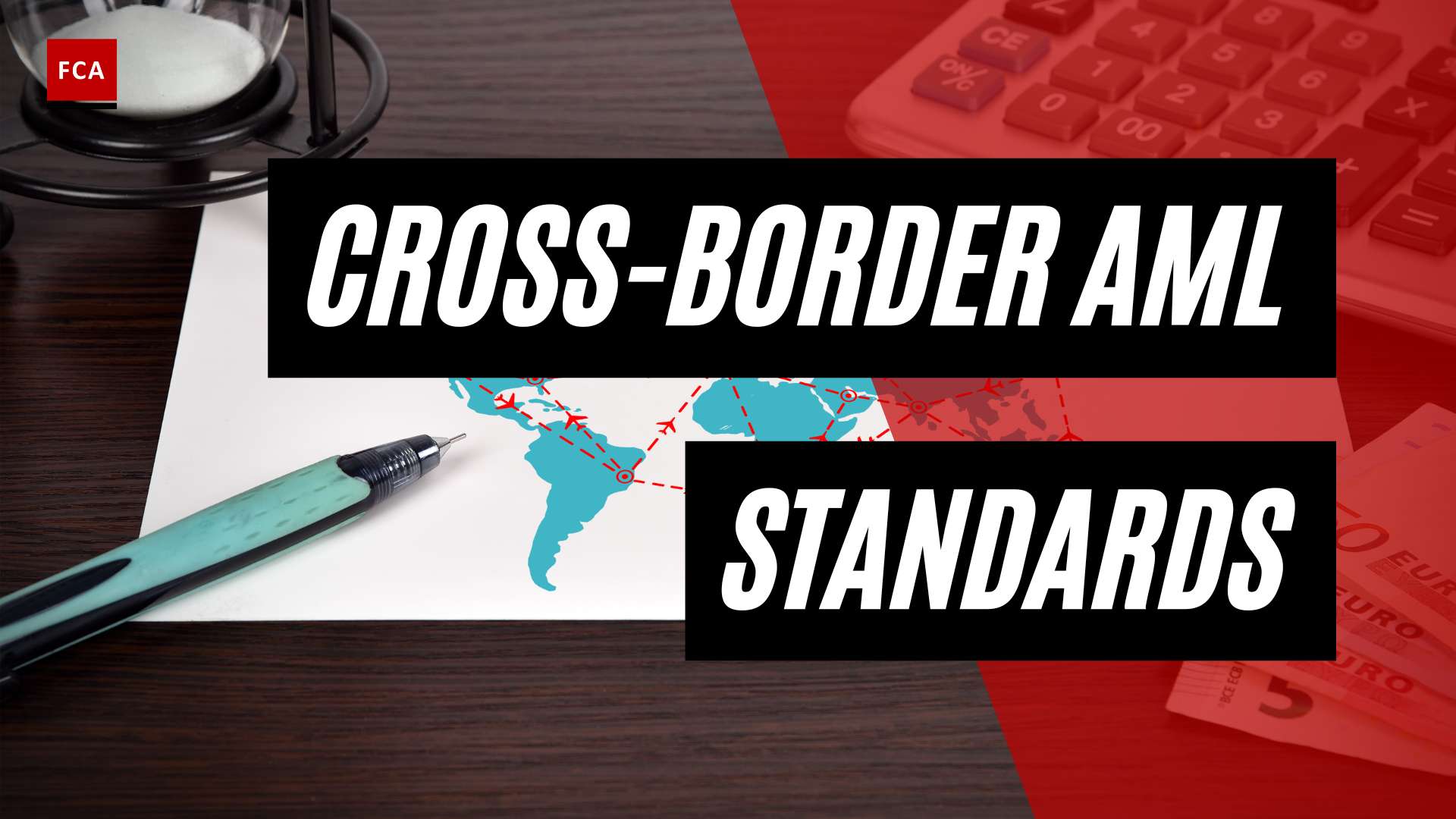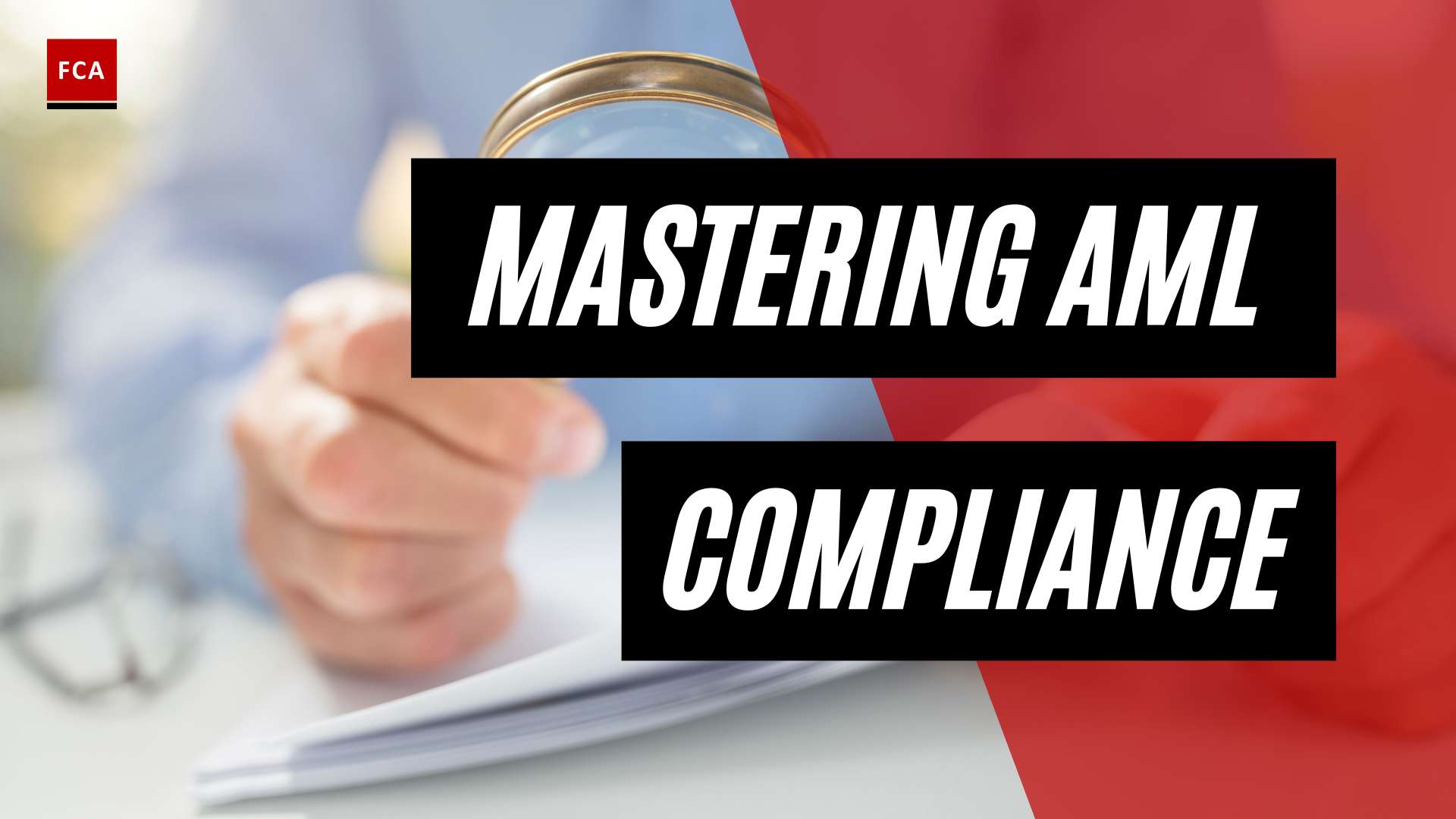Understanding OFAC Sanctions Compliance
To ensure compliance with OFAC (Office of Foreign Assets Control) sanctions, it is essential to have a clear understanding of the regulations and their significance. This section will provide an introduction to OFAC sanctions and highlight the importance of OFAC compliance.
Introduction to OFAC Sanctions
OFAC is an agency of the U.S. Department of the Treasury that administers and enforces economic and trade sanctions in order to protect national security and foreign policy goals. OFAC sanctions restrict individuals, organizations, and countries from engaging in certain financial transactions with designated entities or individuals.
The OFAC sanctions list includes individuals, organizations, and countries that are subject to various restrictions, such as asset freezes, trade embargoes, and travel bans. Companies must conduct due diligence to ensure that they are not doing business with entities or individuals on the OFAC’s Specially Designated Nationals (SDN) list. Entities on this list are prohibited from conducting any business transactions within the U.S. or with U.S. persons or entities.
Violations of OFAC sanctions can have serious consequences. Companies that fail to comply with OFAC regulations may face criminal charges, fines, and imprisonment. These penalties can vary depending on the severity and scope of the violation, with fines ranging from thousands to millions of dollars.
Importance of OFAC Compliance
Compliance with OFAC sanctions is of utmost importance for individuals and organizations operating within the U.S. or engaging in transactions involving U.S. persons or entities. The consequences of violating OFAC sanctions can be severe, both financially and reputationally.
Penalties for OFAC violations can have a significant impact on the financial health and reputation of a company. Fines imposed for non-compliance can range from thousands to millions of dollars, depending on the nature and extent of the violation (Federal Lawyer). These fines can quickly escalate, causing substantial harm to a company’s bottom line.
In addition to financial repercussions, non-compliance with OFAC sanctions can tarnish a company’s reputation. The negative publicity and loss of trust from customers, partners, and stakeholders can have long-lasting and far-reaching consequences.
To mitigate these risks, companies must prioritize OFAC compliance by implementing effective compliance programs that include due diligence, risk assessments, and robust screening processes. Regular employee training and awareness programs are also essential to ensure that individuals within the organization understand the importance of complying with OFAC regulations.
Staying ahead of the game requires companies to stay informed about changes to sanctions programs and regularly update their compliance programs. Ignorance of OFAC regulations is not a valid defense, and companies must actively monitor developments, seek legal counsel, and adapt their compliance measures accordingly.
By demonstrating a commitment to OFAC sanctions compliance, companies can not only avoid penalties and reputational damage but also contribute to the broader efforts of maintaining national security and foreign policy goals.
OFAC Enforcement Actions and Trends
To stay ahead of the game in achieving OFAC sanctions compliance, it is essential to stay informed about recent enforcement actions and key trends in OFAC sanctions enforcement. This knowledge allows compliance professionals to adapt their strategies and ensure they are meeting the evolving regulatory landscape.
Recent OFAC Enforcement Actions
In 2023, the US Department of the Treasury’s Office of Foreign Assets Control (OFAC) assessed over $1.5 billion in penalties across 17 resolutions, marking the highest volume of penalties ever assessed by OFAC in a single calendar year. This unprecedented penalty total was largely driven by record settlements with Binance Holdings, Ltd. and British American Tobacco (BAT).
Of the 17 public enforcement actions issued by OFAC in 2023, violations of seven different OFAC sanctions programs were involved. The majority of these actions were related to violations of sanctions targeting Russia or Iran.
It is noteworthy that in 2023, there was increased cooperation between OFAC and other federal agencies. Four OFAC actions were part of parallel resolutions with the Department of Justice (DOJ) and/or other regulators, indicating a heightened focus on criminal sanctions enforcement and sanctions evasion (Morrison Foerster).
Key Trends in OFAC Sanctions Enforcement
In recent years, OFAC has demonstrated its commitment to pursuing enforcement actions against non-US financial institutions and other companies that conduct business with US persons or within the United States, resulting in violations of US sanctions. This includes situations where the exportation, reexportation, sale, or supply of goods, services, or technology from the United States to sanctioned jurisdictions or specially designated nationals (SDNs) occurs (Morrison Foerster).
It is crucial for organizations to be aware of these trends and adjust their compliance efforts accordingly. Compliance professionals should prioritize comprehensive due diligence and risk assessment processes to identify potential risks and ensure compliance with OFAC regulations. Adequate employee training and awareness programs are also essential to promote a culture of compliance within the organization.
By understanding recent enforcement actions and key trends in OFAC sanctions enforcement, organizations can strengthen their compliance efforts and mitigate the risk of violations. Maintaining compliance with OFAC sanctions lists and keeping abreast of regulatory updates are crucial steps in achieving a robust OFAC compliance program. For a broader understanding of OFAC regulations, refer to our article on navigating OFAC regulations.
Consequences of Violating OFAC Sanctions
Violating the Office of Foreign Assets Control (OFAC) sanctions can have serious consequences for individuals and organizations. It is important to understand the penalties for OFAC violations and the impact they can have on financial health and reputation.
Penalties for OFAC Violations
Penalties for violating OFAC regulations can be severe, with fines ranging from thousands to millions of dollars, depending on the severity and scope of the violation. In 2023, the US Department of the Treasury’s Office of Foreign Assets Control assessed over $1.5 billion in penalties across 17 resolutions, representing the highest volume of penalties ever assessed by OFAC in a single calendar year. Notably, record settlements with Binance Holdings, Ltd. and British American Tobacco (BAT) contributed to this unprecedented penalty total (Morrison Foerster).
It is important to note that ignorance of OFAC regulations is not a valid defense. Companies and individuals must stay informed about changes to sanctions programs and regularly update their compliance programs to avoid unknowingly violating OFAC regulations (Federal Lawyer). Working with experienced legal counsel can help navigate the complex and evolving legal landscape governing OFAC compliance, ensuring that organizations remain in full compliance with OFAC regulations (Federal Lawyer).
Impact on Financial Health and Reputation
The consequences of violating OFAC sanctions extend beyond financial penalties. Violations can have a substantial impact on an organization’s financial health and reputation. Financial institutions and businesses found to be in violation of OFAC regulations may face:
- Loss of business opportunities and partnerships
- Damage to brand reputation and customer trust
- Restricted access to financial services and markets
- Increased scrutiny from regulatory authorities
These consequences can have long-lasting effects, hindering an organization’s ability to operate effectively and harming its standing within the industry. It is crucial for businesses to prioritize OFAC compliance to protect their financial stability and reputation.
Maintaining a strong compliance program, conducting regular risk assessments, and providing comprehensive employee training are essential steps in mitigating the risk of OFAC violations. By implementing robust due diligence processes and staying informed about OFAC regulations, organizations can safeguard themselves against the potential financial and reputational damage associated with violating OFAC sanctions.
To ensure compliance with OFAC sanctions, organizations should also regularly screen their transactions, business partners, and customers against the OFAC sanctions list. This list includes individuals, entities, and countries subject to various OFAC sanctions programs. By maintaining compliance with OFAC sanctions lists, businesses can minimize the risk of inadvertently engaging in prohibited transactions with sanctioned parties.
In conclusion, understanding the penalties for OFAC violations and the potential impact on financial health and reputation is crucial for organizations and individuals subject to OFAC regulations. By prioritizing compliance, staying informed, and implementing comprehensive compliance programs, businesses can navigate the complex landscape of OFAC sanctions and protect themselves from severe penalties and reputational harm.
Ensuring OFAC Sanctions Compliance
To maintain compliance with OFAC sanctions, organizations must implement various measures to mitigate risks and adhere to sanctions regulations. This section will explore three important aspects of ensuring OFAC sanctions compliance: due diligence and risk assessments, employee training and awareness, and implementing robust due diligence processes.
Due Diligence and Risk Assessments
Conducting due diligence and risk assessments is a critical step in ensuring OFAC sanctions compliance. Companies must take proactive measures to prevent doing business with entities or individuals on OFAC’s Specially Designated Nationals (SDN) list. These entities are prohibited from conducting any business transactions within the U.S. or with U.S. persons or entities.
By implementing a systematic due diligence process, organizations can screen clients, transactions, and third parties against sanctions lists and other relevant databases. This helps identify potential red flags and mitigate the risk of inadvertently violating OFAC sanctions. Regular risk assessments should also be conducted to identify gaps in sanctions compliance programs and implement necessary improvements (Exiger).
Employee Training and Awareness
Employee training and awareness programs play a crucial role in maintaining OFAC compliance within organizations. These programs help employees understand the importance of complying with sanctions regulations and provide them with the knowledge and skills necessary to identify and address potential compliance risks.
Training sessions should cover topics such as recognizing prohibited activities, understanding OFAC regulations, and familiarizing employees with the consequences of non-compliance. By promoting a culture of adherence to sanctions regulations, organizations can create a strong line of defense against potential violations and mitigate risks (Exiger).
Implementing Robust Due Diligence Processes
To ensure effective compliance with OFAC sanctions, organizations should implement robust due diligence processes. This involves establishing clear policies and procedures for screening clients, transactions, and third parties against sanctions lists and other relevant databases. By implementing comprehensive and reliable screening mechanisms, organizations can identify and mitigate potential risks.
Automated screening tools can enhance efficiency and accuracy in the due diligence process. These tools can scan customer databases against OFAC’s sanctions lists, based on the organization’s internal policies and procedures. Failing to identify and block a target account, such as a terrorist, can have severe consequences, including funds transfer to a Specially Designated National, enforcement actions, and negative publicity.
By implementing due diligence processes that align with OFAC compliance requirements, organizations can minimize the risk of non-compliance and demonstrate a commitment to adhering to sanctions regulations. Regular monitoring and review of these processes are essential to ensure ongoing compliance and to adapt to any changes in OFAC regulations.
In the next section, we will explore an overview of OFAC regulations, compliance programs, and maintaining compliance with OFAC sanctions lists.
Navigating OFAC Regulations
To ensure OFAC sanctions compliance, businesses and organizations must have a clear understanding of the relevant regulations and implement effective compliance programs. Navigating OFAC regulations involves familiarizing oneself with the overview of OFAC regulations, establishing robust compliance programs, and maintaining compliance with OFAC sanctions lists.
Overview of OFAC Regulations
OFAC, the Office of Foreign Assets Control, administers and enforces economic and trade sanctions based on U.S. foreign policy and national security goals. It plays a crucial role in preventing money laundering, terrorism financing, and other illicit activities. While OFAC does not maintain a specific list of countries that U.S. persons cannot do business with, it imposes sanctions on individuals, entities, and countries through various programs.
OFAC Compliance Programs
To navigate the complexities of OFAC regulations, businesses and organizations need to establish comprehensive OFAC compliance programs. These programs should encompass policies, procedures, and internal controls designed to mitigate the risk of non-compliance. A robust compliance program includes elements such as:
-
Risk Assessment: Conducting a thorough OFAC risk assessment enables organizations to identify and understand the potential risks associated with their operations, customers, and transactions. This assessment forms the foundation for developing appropriate risk mitigation strategies.
-
Employee Training and Awareness: Ensuring that employees receive regular training on OFAC regulations and sanctions compliance is essential. Training programs should cover topics such as recognizing red flags, understanding prohibited activities, and reporting suspicious transactions.
-
Implementing Due Diligence Processes: Businesses should establish and implement robust due diligence processes to screen customers, clients, and business partners against the OFAC sanctions lists. This process helps identify and block transactions involving sanctioned individuals and entities. It is crucial to use reliable data sources and employ effective screening techniques to ensure accurate results.
Maintaining Compliance with OFAC Sanctions Lists
Maintaining compliance with OFAC sanctions lists is a critical aspect of navigating OFAC regulations. These lists include the names of individuals, entities, and countries subject to sanctions. Financial institutions and businesses must regularly screen their customer databases and transactions against these lists to identify and block any prohibited activities.
OFAC provides free access to the *.TXT and *.PDF versions of its sanctions lists, which can be manually scanned. Additionally, the online search engine called Sanctions List Search, available at treas.gov, offers an efficient way to check against OFAC’s lists. Incorporating automated screening solutions, which leverage advanced technologies and algorithms, can enhance the efficiency and accuracy of the screening process.
By staying up to date with OFAC regulations, implementing robust compliance programs, and employing effective due diligence processes, businesses can navigate OFAC requirements and minimize the risk of violations. It is crucial to regularly review and enhance compliance frameworks to adapt to evolving regulations and best practices in the field of sanctions compliance.









